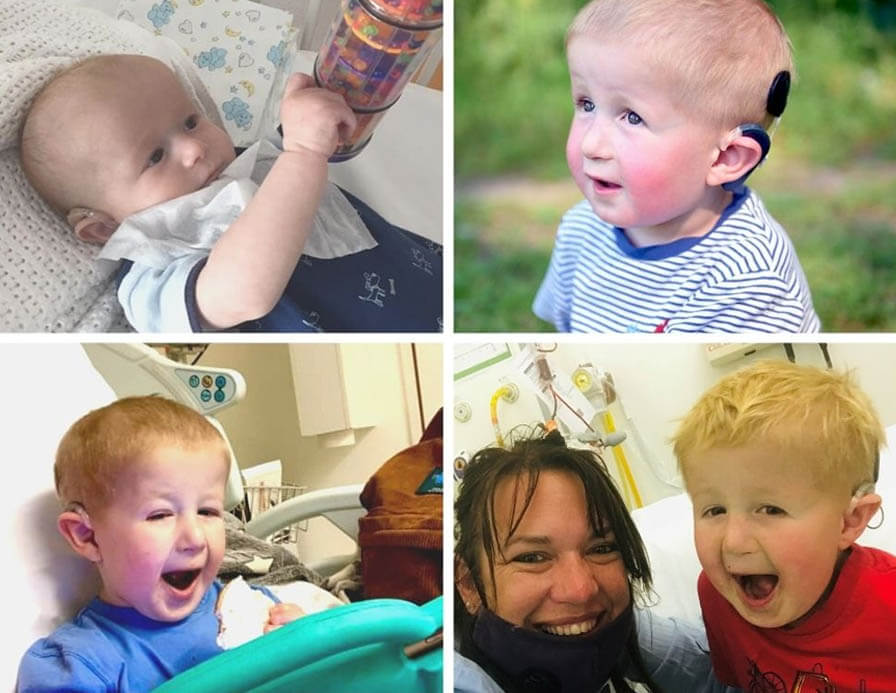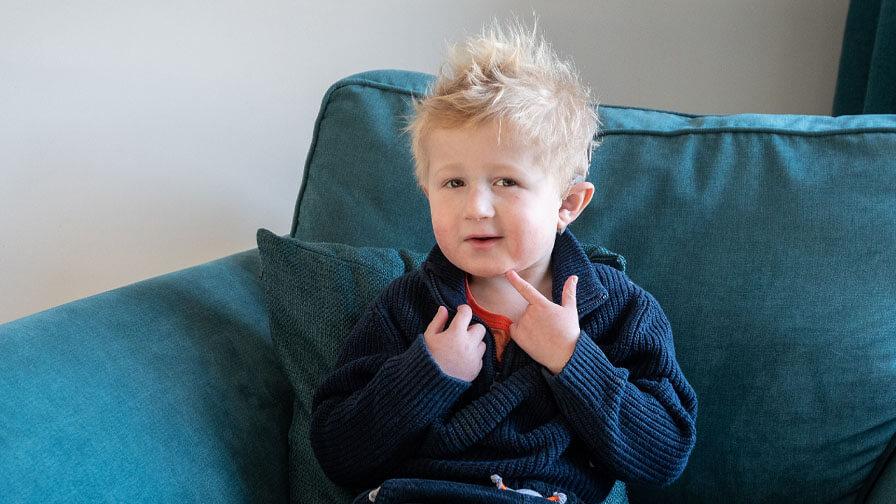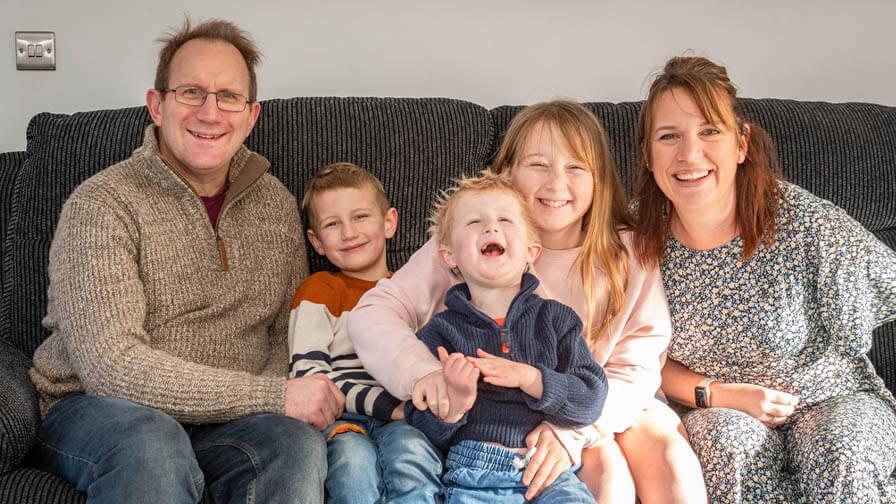breadcrumb navigation:
- Home /
- Research /
- Family stories /
-
current page
Finley: Diamond-Blackfan Anaemia (DBA)
Finley: Diamond-Blackfan Anaemia (DBA)
Published on
Updated:

Finley's story
Diamond-Blackfan Anaemia (DBA)
“Finley is completely unique and he has taught us and his siblings so much about life,” says his mum Ellie. “We didn’t realise when we named him, but Finley means warrior and that he truly is. Every single task is a battle for him but he never ever shows it. He absolutely loves life and laughs every single day.”
Finley has been fighting since the day he was born. At birth, his oxygen levels were dangerously low, and tests found that he was severely anaemic. He needed three blood transfusions in his first 24 hours of life.

While in special care, baby Finley was also found to have a serious heart condition, and a scan showed enlarged ventricles in his brain. His family were warned that this could cause developmental delay. Then at six weeks old, he was diagnosed with profound hearing loss.
We found ourselves on a conveyor belt of poor prognosis, and lived on a constant knife-edge.
At three months old, Finley was finally diagnosed with Diamond-Blackfan anaemia (DBA), an extremely rare condition where the bone marrow fails to produce enough red blood cells. It is caused by changes in certain genes and often causes other physical problems – for Finley, his heart condition and hearing loss are linked.
Finley had cochlear implants fitted at 13 months old, to allow him to perceive sound. This was followed by open heart surgery when he was three. He has also fought meningitis twice.

His current treatment regime sees Finley have monthly blood tests, followed by a four-hour blood transfusion the next day.
The most difficult aspect of his transfusions is managing the iron overload they cause. Left untreated, this causes organ failure. So he takes daily tablets to remove excess iron – but these too cause side effects. His care is a constant delicate balance.
Finley is also at greater risk of developing certain cancers, especially leukaemias, so this too is monitored.

Action Medical Research funded a team based at King’s College London, who are working to better understand the genetic causes of DBA. Led by Professor John Strouboulis, the team has found a potentially new explanation for this type of anaemia in children. They hope their work will lead to improved diagnosis and treatment of DBA at an early stage in the disease process. It may also open up new avenues for developing drugs to treat it.
Looking to the future, Finley could need a bone marrow transplant if his current treatment stops working. His family also hope that gene therapy might one day help him. “A cure is our dream,” says Ellie.
Because DBA is so rare, research funding is very limited. Without hope, we wouldn’t be where we are today.

Support our vital research
We're funding medical research to beat the diseases that devastate the lives of so many of our children
